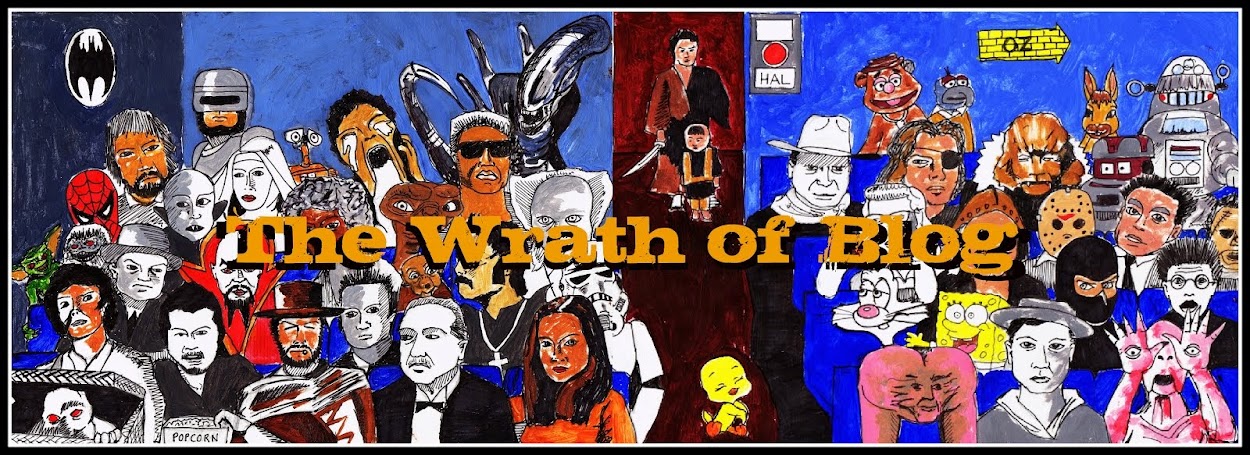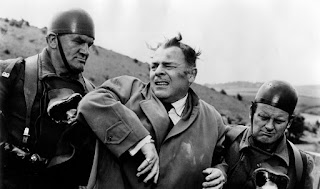 The Coen's have always been cruel - be it shooting Brad Pitt's loveable idiot in the face in Burn After Reading (2008) or needlessly killing Donnie in The Big Lebowski (1998) - and here they revel in beating down its protagonist. But they have a lot of sympathy for him also - when he's beaten up in the alleyway by a shadowy stranger, we know he deserves it, but feel sorry all the same. And it's the same attitude they have with the subject matter. Although they often poke fun at the free-spirited melancholia of it all, they have a lot of love for the music. Long-time collaborator T-Bone Burnett provides the tunes, and it's a great soundtrack. Most impressively, the cast perform live on set, and Oscar Isaac manages to belt out a beautiful opener in Dave van Ronk's Hang Me, Oh Hang Me (the film is loosely based on van Ronk's memoirs).
The Coen's have always been cruel - be it shooting Brad Pitt's loveable idiot in the face in Burn After Reading (2008) or needlessly killing Donnie in The Big Lebowski (1998) - and here they revel in beating down its protagonist. But they have a lot of sympathy for him also - when he's beaten up in the alleyway by a shadowy stranger, we know he deserves it, but feel sorry all the same. And it's the same attitude they have with the subject matter. Although they often poke fun at the free-spirited melancholia of it all, they have a lot of love for the music. Long-time collaborator T-Bone Burnett provides the tunes, and it's a great soundtrack. Most impressively, the cast perform live on set, and Oscar Isaac manages to belt out a beautiful opener in Dave van Ronk's Hang Me, Oh Hang Me (the film is loosely based on van Ronk's memoirs).It's often difficult to work out what kind of film it is. It shifts between being a drama about an artist struggling to make an impact, a sombre look at what life was like as a folk musician in the early 60's, a Kafkaesque comedy with a tragic anti-hero at its heart, and a dark, somewhat mystical odyssey. Like the Coens' earlier film, A Serious Man (2009), it keeps the audience at arms length. But as brilliant as that film was, Inside Llewyn Davis is a more mature take, creating an altogether warmer film, offering throwaway, laugh-out-loud moments such as Llewyn's recording with fellow artists Jim (Justin Timberlake), a marketable, likeable sort of guy, and Al Cody (Adam Driver), whose performance during Please, Mr Kennedy steals the entire damn film.
As the film progresses, and Llewyn finds out Jim's girlfriend and performing partner Jean (Carey Mulligan) is pregnant, possibly with his child, and after he embarks on a doomed road trip with heroin-addled jazz musician Roland Turner (John Goodman) and chain-smoking Beat poet Johnny Five (Garrett Hedlund), it becomes clear what the film is really about. The final scene will leave some people scratching their heads, but I believe it signifies the point in all our lives when we look at our own existence and contemplate the meaning of it, often coming to no conclusion. This is beautiful, thoughtful, sometimes uncomfortable film-making, with the Coen's at their most melancholic.
Directed by: Ethan Coen, Joel Coen
Starring: Oscar Isaac, Carey Mulligan, Justin Timberlake, Ethan Phillips, Robin Bartlett, Max Casella, Adam Driver, John Goodman, Garrett Hedlund
Country: USA/UK/France
Rating: *****
Tom Gillespie










